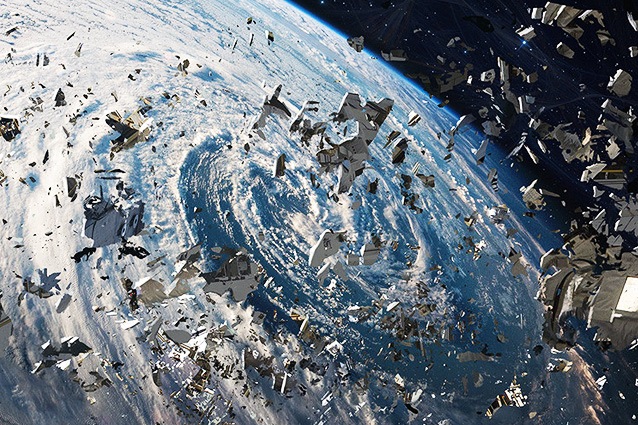With all that frenzy surrounding the fall of the Chinese Tiangong-1 space station, the scientists started to reignite the debates on space pollution and the measures to be taken to regulate it. Sometimes invisible to the human eye, space debris can pose a threat to astronauts, space travel, and satellites.
NASA has calculated that 500,000 pieces of space debris are orbiting near the Earth’s atmosphere and 10,000 of these objects are larger than 10 cm. Each object orbits around the Earth at an average speed of 29,000 km/hour, according to the astronomers.
Cleaning the space debris layer surrounding the Earth is challenging
The space debris layer is formed of abandoned rockets and satellites remains. To solve this problem, several companies and space agencies have started working on viable space debris cleaning projects.
Airbus has, for example, designed a giant harpoon that will be used to drag into the Earth’s atmosphere large objects that pollute our orbit.
For its part, the European Space Agency (ESA) plans to test several methods, including nets and robotic arms, to bring to the Earth’s atmosphere some of its abandoned satellites.
The goal is to avoid collisions between large objects in space because they could generate thousands of new space debris, agreed the specialists.
Besides, scientists add that, at the moment, there is no miracle method to remove this waste and very precise navigation techniques to target the object and take it into the atmosphere are needed.
Space pollution is a major problem for operators who want to invest in space and send new satellites
Determining an international law that can regulate the flow of this debris is another key issue.
The UN Committee for the Peaceful Use of Outer Space had also drafted several agreements and conventions, forcing countries, for example, to register objects launched in outer space.
But for the moment no international law limits satellite launches or requires companies and space agencies to return their devices to Earth.
According to some specialists, when the finances and economic profits of the companies involved in producing and placing satellites on the orbit will be affected by space pollution, then political decisions regarding the implementation of measures for space debris cleaning will be taken.




